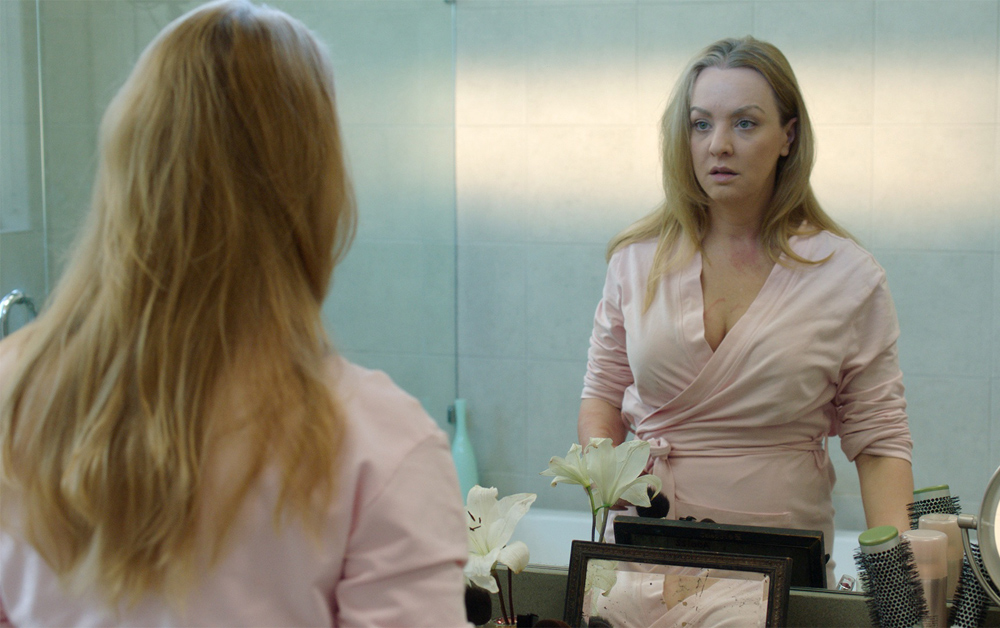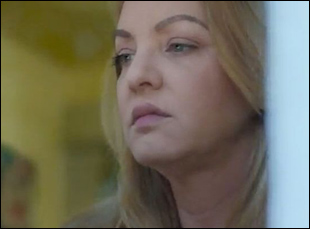There are never any wasted moments in the films of Debra Eisenstadt, whether on screen or off. So it was seen as an opportunity when the writer/director found out that Wendi McLendon Covey’s brief window to star in her latest film “Blush” was going to arrive just after the actress had come off an already grueling schedule of back-to-back studio movies and the latest season of “The Goldbergs.”
“At the last minute, I think she was freaked out at the daunting task ahead of her – she was exhausted from being in Atlanta for months on end,” Eisenstadt recalling with a laugh how she feared not that the person who would carry her dark domestic comedy wasn’t going to give it her all. “I was really excited actually that she was going to be that burnt out because I thought it would make her performance even better.”
Her instincts were right, with McLendon Covey, requiring no prep time to slip into the role of Cathy, a harried housewife who appears worse for wear in “Blush,” and it’s just one of many elements in Eisenstadt’s fourth feature that can appear to have rough edges at first, yet somehow falls into place to create something beautiful. Inspired by the director’s own fears of being hemmed into suburban life, growing up in the heart of New York where the indistinguishable manicured lawns that sat outside the bustling city were unthinkable, the film captures Cathy at a particularly restless moment, tired of tending to all the activities that her daughter’s 7th grade classes requires and barely noticed by her longtime husband Matthew (Steve Little) as she makes breakfast, not to mention being enlisted by her sister Gail (Catherine Curtin) to catsit.
As someone who loathed the idea of grass to begin with, Eisenstadt wonderfully perverts the notion that it could be greener on the other side of the fence as Cathy longingly looks at her next door neighbors, an irrevocably broken family that gave up long ago on trying to be their best selves for one another as their teenage son (Max Burkholder) openly calls out his mom Gemma Jean (Christine Woods) and dad Paul (Graham Sibley) for their poor parenting while they do little to contradict his idea of them, usually drowning their sorrows in drink. Where others could see failure, Cathy sees potential freedom, finding a way to insert herself into their lives that threatens to make things messier for all, and McLendon Covey delivers the kind of effervescent performance that one’s come to expect of her since stealing scenes in “Bridesmaids,” only it seems more powerful in service of a character who believes her brightest days are behind her.
After premiering at Sundance last year under a different title (“Imaginary Order”), “Blush” is now prepared to hit home in a number of ways, debuting this week on iTunes and VOD, and Eisenstadt graciously took the time to talk about the personal origins of the story, making the most of a DIY production, and her distinctive, emotionally attuned editing style that helps capture her characters at their core.
I starting going to a parenting group when I lived in New York City [after] I had a kid, and it evolved into this unofficial group therapy that we all stuck with, even after our kids outgrew it. What unraveled in that group with those people was really dramatic and intense and I was dealing with a lot of my own horrifying things [laughs] in combination with the things that were happening in that group and I needed an outlet. I heard somebody say, “Write the thing that frightens you most” and I also had moved from New York to L.A. and I was a little freaked out about that because I’d grown up in the city and we were moving away [to a more suburban area], so it was just a cathartic exercise to begin with.
Then the script actually was a Nicholls Finalist and it got a lot of attention. A producer wanted to produce it, but at a much bigger budget, so he pursued it for a while and we were waiting for actresses to read it on months on end and it was just this kind of Sisyphean situation where it wasn’t happening. In the mean time, I was so frustrated, I collaborated with a friend on another script and I ended up making a whole other film in the process of waiting for this to get made and when I came back from doing that, which was a micro budget film, I was like, “This is never going to get made if I don’t do it for a fraction of what the budget is.” Another friend has always told me, “Before your film is even happening, you’ve got to set a date and just commit to that date and believe that your film is going to happen and it’ll happen.”
That’s basically what happened. I took the script back from the producer, I produced it myself and I set a date and I created a Pitchdeck and I made it known to people I knew that I was looking for financing. and I was introduced to ACE Pictures who were looking for content and they loved the Pitchdeck and they loved the script, so that’s how it came to be.
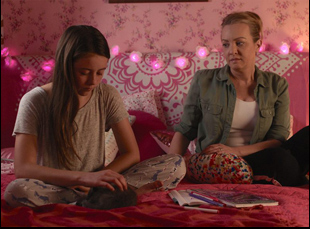
There’s a very specific handwriting on all the films, but just the scrappiness of [“Before the Sun Explodes”] and the way you have to work really fast because we shot 200 scenes in 15 days. It doesn’t really leave a lot of room for preciousness or making really beautiful pictures necessarily, but the thing that has to drive the film are the performances and the script – that’s the two things that I could control and focus on and that’s how you get it made for almost no money.
You cast the film yourself and from what I understand, it isn’t a process that involves auditions, but table reads. Besides finding your actors, does it help give you the tone of your films?
I find that when I’m working on a script and I get to a place where I have a draft that I’m ready to hear, then the project lives or dies with those readings because I’ve done readings of scripts where I get an energy in the room where [it feels like] this may not be worth going any further, like maybe I need to start over. And then I can do a reading with the actors and there’s an electricity happening in the room and an excitement that starts to bubble up and I know that I’m heading in the right direction. It tells me a lot that this is worth pursuing and I know I’m going to have to recast some of these roles, but it helps inform me by what happens vibrationally in the room because screenplays are really nothing without those actors who get to bring it to life in this three-dimensional way. You need to be able to collaborate with people and when people start to get excited about collaborating with you, you want to work with those people. The way I make films, I can’t assume that anyone is going to give me anything to make them, so I really rely on the actors to come onboard in a way that matches my excitement and energy.
Is it true Wendi McClendon Covey came into one of the readings for a different role? I’d love to think it was for Gemma Jean, Cathy’s polar opposite in the film.
No, I had worked with Christine Woods before, and the Gemma Jean character was in my mind very different, but I loved working with [Christine] and I went and saw her in a play and she was playing something that was a similar vibe to Gemma Jean, so I tailored it to her after seeing her performance a bit. [Wendi] actually did a couple readings in the Catherine Curtin role, the sister [of Cathy], and I had another actress attached to the lead role, but ultimately I had the revelation that Wendi’s so amazing in her comedy on TV and in the films that she’s done, but when you meet her, she has a whole other vibe. I [thought], finally, she really should be the lead character. I’d most like to see her in a dramatic role, much like I love to see Adam Sandler do dramatic roles or other actors that are known for their comedy [because] it’s always so exciting to see.
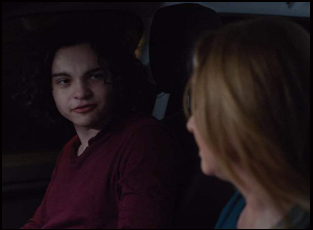
Well, I like dark comedy. That’s what I like to watch and I think this is naturally my sensibility. It’s interesting on “Before the Sun Explodes,” Bill Dawes is also an actor and the role of the female [lead] in that is a comedian and we were looking for a comedian to fill that role, but you needed more of an actress than a comedian to do that role, and even though I was focused on finding the right comedian…and actually, originally I cast Tiffany Haddish. She was supposed to do that part, but the same day she auditioned for “Before the Sun Explodes,” she auditioned for “The Carmichael Show,” and she got that and it was conflicting dates, so she wanted to do it, but she couldn’t. That was “Before Tiffany Haddish Explodes” – I would’ve had to have titled it that. [laughs] But I loved Sarah Butler in that role. She was perfect, so it did work out.
Something I’ve long wanted to ask since you started out in acting and have edited all the narrative films you’ve directed, was it interesting to see how a performance could be shaped there?
Yeah, the editing always is a huge part of it because I do edit the film as well and I’m not really done writing. The script is never finished and you can take things to new heights to the editing. My scenes are kind of fatty for the actors because we didn’t have rehearsal, and having been an actress, there’s something nice about creating cushions on the beginnings and ends of scenes. Then when I go into the edit, I tend to cut out the fat in a way that the performances already have a running start and I feel like it makes for better performances. Sometimes the whole scene is in there, but I want to give the actors a little bit of room to where I actually want the scene to start, so it is a conscious decision.
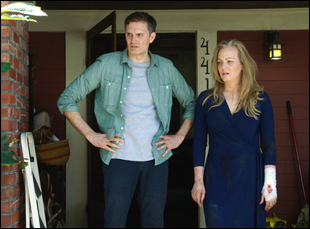
The very first thought I had for the script was in connection to that because I really was feeling like I wanted to see a mom character that I hadn’t seen. Being a mom, it’s a visceral thing and I’m like, “What is that feeling?” And I thought it’s like “All That Jazz,” so I was like I’m going to write a mom version of “All That Jazz.” There’s that sequence where [Roy Scheider’s character Joe Gideon] takes all that medication and [the scenes of routine] was definitely inspired by that, but it’s really my memory of that frantic feeling that I wanted to transfer into this character, not necessarily what the film is. The way it was written, she was doing a lot more stuff, like shaving her legs — all kinds of things that you don’t see now because we had very little time to shoot everything I wanted to shoot of her doing in the bathroom.
Given the span of time to this covered from when you wrote it to when you shot it and edited it, did your feelings about what was important about the story change?
I had worked on this script for so long, I was kind of sick of it. I really had outgrown it and I was wanting to move on, but I felt so much time and effort and work and hope had gone into it that I had to make it, so I what that time gives you, which is perhaps better than making it when you really are in the throes of it is some objectivity that I wouldn’t have had before and a lack of preciousness. In that sense, waiting to get to do it gave me a distance that maybe I needed that helped.
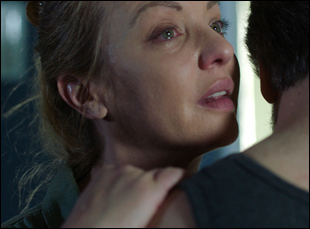
It’s been fascinating, really. The opening night [of Sundance] was great and hearing people laugh because you don’t know if what you think is funny is funny. But it was really positive and I liked that it was just getting out into the world because I didn’t know that it ever would. Just having this privilege of going to festivals has really been great, and I was really looking forward to this theatrical release [because] on top of it taking a long time to make, it’s been taking a long time to be released into the world and then to have the anticlimatic thing of it supposed to be in theaters on April 10th and everyone’s locked in their homes and there’s no theatrical release after all has been a little disappointing, but hopefully more people will watch it if everybody’s stuck inside.




